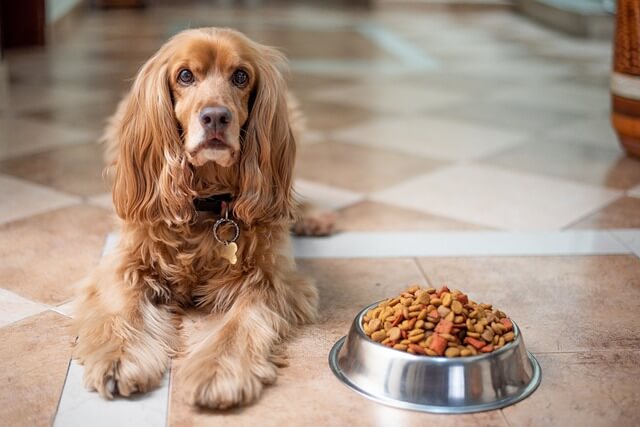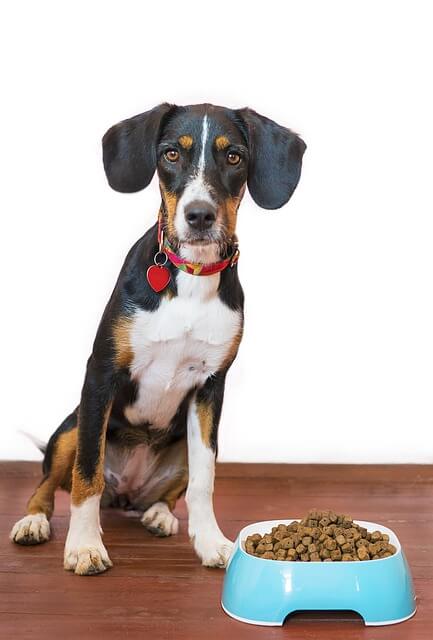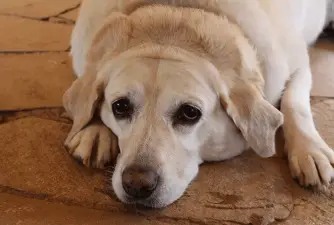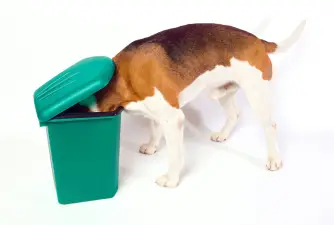Why is My Dog Not Eating [6 Main Reasons]
28.03.2021.
A healthy appetite is usually a sign your dog is healthy. Dogs that have no health concerns should have a regular diet. They love eating, and if you notice your dog not eating, it can be a symptom of a disease. Doesn’t matter how experienced a dog owner you are; if your dog’s not eating, that will cause you stress and anxiety. We all want what’s best for our dogs, so we should know some of the possible reasons our dog is not eating. Most of us would like to get an answer to the question, “Why is my dog not eating?”
The loss of appetite can point to many common conditions. As always, it would be best to call your vet as soon as you notice something weird going on with your dog. In the meantime, here are some of the common and some uncommon reasons your dog won’t eat.
1. Sickness
The most common reason dogs won’t eat is - sickness. The same goes for us - we lose our appetite if we have a cold or are running a fever. The only thing that you’d want to do is rest and take a nap. Take a closer look at your dog, and if your dog won’t eat and the only thing they want to do is sleep, they may be sick.
It is a common thing in the dog world, and as soon as your dog stops eating, you should start keeping an eye on other symptoms. Keep an eye on vomiting, diarrhea, or both. If this state lasts longer than 8 - 12 hours, call your vet and schedule an appointment. In the meantime, you can try one of these things to boost your dog’s appetite;
- Pour chicken, beef broth, clam juice, or tuna water over their food
- Warm-up their food (best to use microwave)
- Try feeding your dog by hand. Some of them might just want attention
- Feed your dog a portion of wet food if their usual meal is dry food only (or vice versa)
- Soften up their dry food by pouring hot water over it

Many owners believe that periodontal disease is the leading cause their dog refuses to eat, but that is relatively rare. However, in some severe cases, like tumors in the dog’s mouth, it can cause your dog to refuse to eat.
If you want to know how to boost your dog’s immune system, check out this article - Dog vitamins and when should you give them.
2. Changes and issues
This is not a secret to dog owners, but dogs are very gentle beings, and significant life changes can affect their appetite, and you can notice your dog not eating. Emotional or social issues and turmoils can make a dog refuse to eat, just as big changes in our life would affect our appetite.
Some dogs don’t want to eat after being rehomed. Dr. Hohenhaus of The Animal Medical Center in New York had a patient that refused to eat after their previous owner passed away and he was rehomed. Dr. Hohenhaus believes there are two types of people - the ones that eat a lot and those that cannot eat when they are going through big changes in life, like career changes, moving, break-ups, etc. She also believes the same goes for dogs.
3. Their owner is missing
We don’t mean that in the literal sense; this only means their owner is not home. Dogs are social and pack animals, and if their owner is not at home, a dog might refuse to eat.

If you notice your dog jumps head first into their bowl after greeting you coming home, it is a confirmation that they haven’t been eating while you were away. Most dog owners experienced this at some point in their lives. If you ever had to leave your dog to a family member or a friend for a few days, they probably told you your dog refused to eat for the first couple of days. That is entirely normal, and it will usually pass as soon as the dog adjusts to the new surroundings.
A dog refusing to eat is a lot less worrying than a dog refusing to drink. Check out this article for more info - Dehydration in dogs.
4. Meds
Meds are the best way to battle different diseases, bacteria, or viruses. However, some of them can cause side-effects like the loss of appetite. If your dog recently started taking medications or changed the type of drugs they were taking, you may notice your dog not eating.
One of the most common side-effects of antibiotics is loss of appetite. Some NSAIDs can cause nausea, and antibiotics can cause a stomachache. It is no wonder your dog might refuse to eat. Call your vet and tell them what’s going on. If your dog refuses to eat for more than 12 hours, call your vet again and ask for advice. Sometimes a different medication can better suit your dog.
When our dogs are in pain we want to help them. Check out this article for more info - Pain relief for dogs.
5. Habits
Humans have specific parts of the day when they eat, and dogs might be similar. Some of us have eating habits, and we might have a particular part of the day when we can eat. Dogs might be similar, and they could have a habit of eating only at noon, or perhaps only in the evening.

6. Recipe changes
Dog food manufacturers can change the recipes of the dog food your dog is used to eating. These changes can cause your dog to not eat. Keep a close eye on the food packaging, and if you notice it says “Improved formula” or “New recipe,” it can affect your dog and cause them to refuse to eat.
A potential way to battle this is to make sure your dog eats different food from time to time. That will prepare them for any event of food recalls, changed formulas, or discontinuation. Although dogs get all the necessary nutrients from their food, so mixing it is not necessarily required. It would be best to choose dog food from a trusted manufacturer with a long history and great production techniques.
If you want to know what dog foods might be, check out this article - Best dry dog food.
When should I call my vet if my dog won’t eat?
If you notice your dog not eating, it is usually nothing to be too worried about. Dogs can easily go a few days without food and feel no side-effects of not eating. However, if you notice your dog is not eating and they have additional symptoms like vomiting, diarrhea, disorientation, accidents, or coughing (just some symptoms, there are more to keep an eye on), you should call your vet and ask for a check-up as soon as possible.
Most cases of dogs not eating will go away in a couple of days. The dog will resume their regular diet when the issue causing your dog to lose appetite goes away. If you are worried about your dog’s health, you can always give your vet a call and tell them what you’re concerned about.
World Dog Finder team

![Why is My Dog Not Eating [6 Main Reasons]](https://worlddogfinder.com/imager/1200x675/upload/articles/dog_sleeping_next_to_food.png)





Share